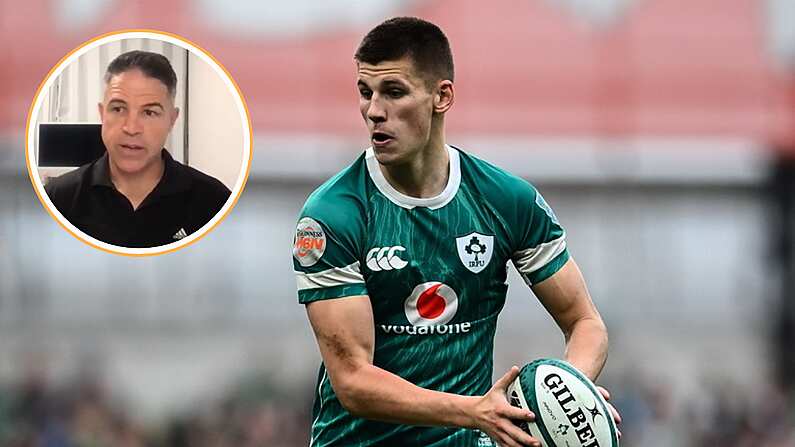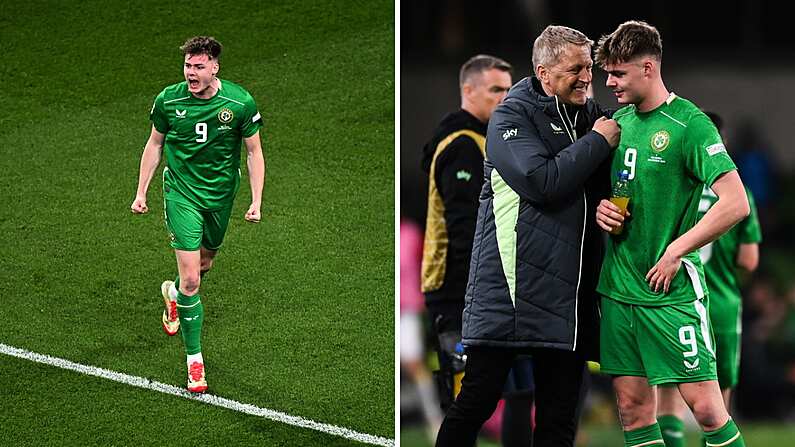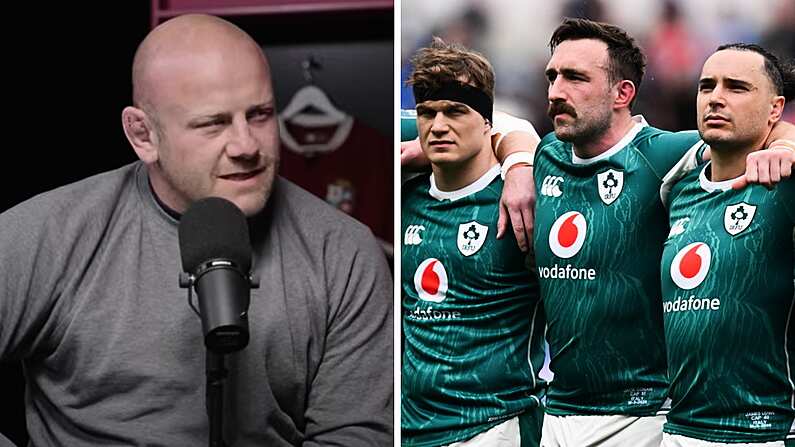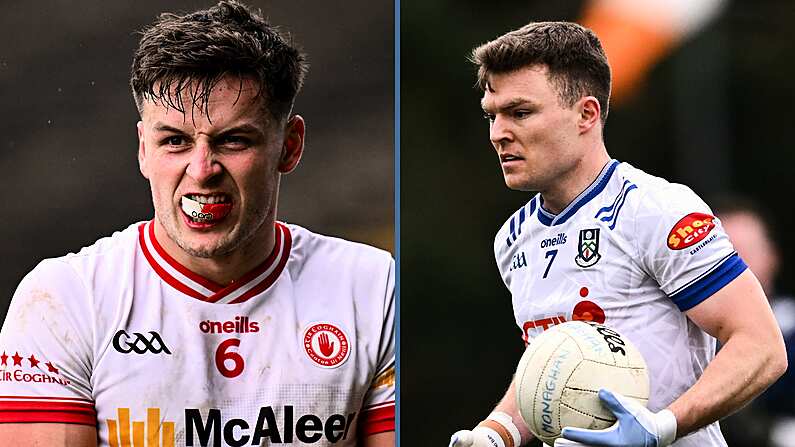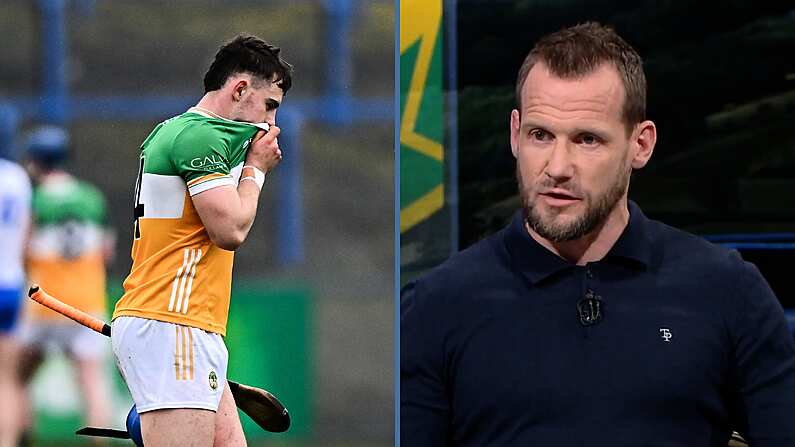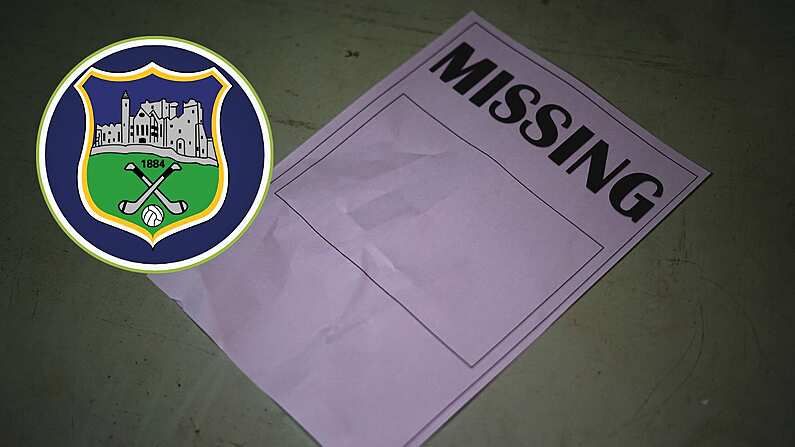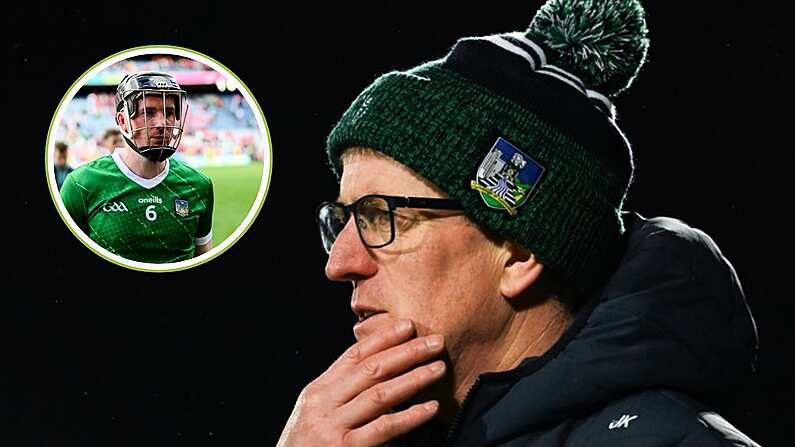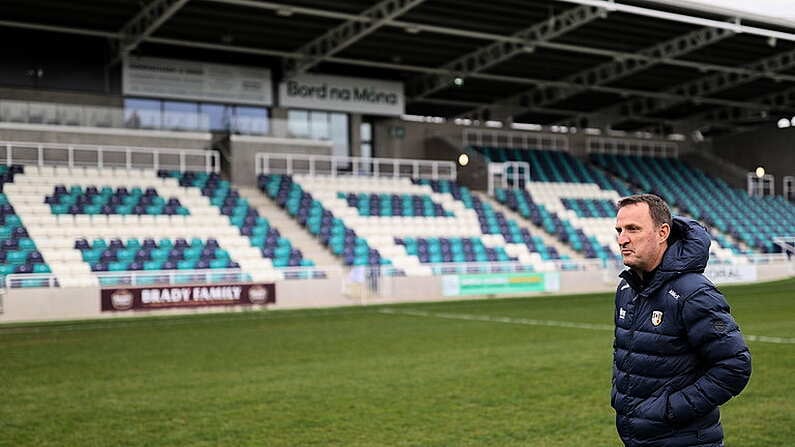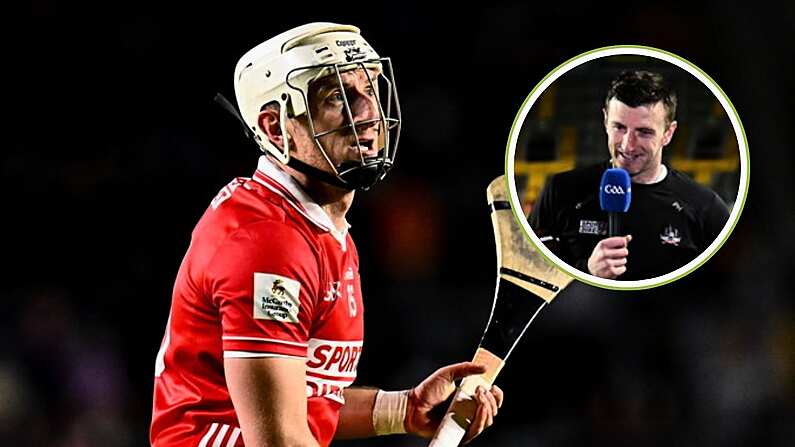When we saw the result, that Waterford beat Cork, I just remember that complacency set in straight away when we knew it wasn’t Cork in the final.
I suppose we didn’t think too deeply about having to travel down to Waterford and about what lay in store for us - we didn’t take them too seriously.
We prepared well but at the back of the mind you’re thinking, ‘It’s only Waterford’. We got our comeuppance at the end of the day.
Declan Quill, former Kerry footballer
There’s one point in particular that Niall Hennessy is keen to stress: it wasn’t a fluke.
In the grand scheme, a freak result, yes; Waterford beating Kerry in a Munster football final doesn’t happen often. That’s especially true for a Kerry team featuring names like Colm Cooper, Declan O’Sullivan, Seamus Scanlon, Kieran Donaghy, Bryan Sheehan and Declan Quill.
On a warm Wednesday evening in early September 15 years ago, the Déise shocked the Kingdom to claim their first ever Munster U21 title. For a county which has only won one Munster senior football title - way back in 1898 - and has never won a Munster minor football crown, it is one of their footballers’ greatest days.
The victory had its seeds sown at U14 by the same men who stood on the sideline for Waterford on that day in Walsh Park. Manager, Pat Nugent; coach, John Hennessy (also Niall Hennessy’s father); selector, Mike Monaghan.
When the team reached U16, Nugent and his backroom staff approached the hugely successful Laois minor management team of the late 90s - one which reached three consecutive All-Ireland minor finals, winning two.
The brains of Oliver Phelan and his team were picked, their plans and strategies assimilated and then applied to the Waterford group.
“We’d have the same type of training as Laois. The same team bonding sessions, going away together,” said Hennessy.
“We trained at eight o’clock every Sunday morning from when we were U16. We’d have breakfast together afterward.”
The county team became like a club team as the players and management progressed through the age grades together. A tight bond formed.
Nugent fought for the little things which add polish to a team: tracksuits, hoodies and those trips away. If they were playing away to Kildare, the journey was made the day before and they stayed at the Red Cow. Those were the type of luxuries not usually afforded to a Waterford underage football team.
“You’re minors so you’re not going to be out every Saturday night but even if the lads had gone out, everyone would still be there.
“There were no extreme bans that you couldn’t play soccer or you couldn’t play hurling; they weren’t like that at all, they were looking after us.”
In the 2000 Munster Minor Championship, a Kerry side featuring many names who would also play three years later were given a fright by Waterford. Kerry won by a point in Killarney but it was a game Waterford felt they should have won.
Conor Counihan, the two-time All-Ireland winner with Cork and a future All-Ireland winning manager with the Rebels, had given the panel a talk prior to the game which made hairs stand up on the back of their neck. Hennessy got the feeling Counihan didn’t like Kerry. He was one of many Cork and Kerry greats Waterford management brought in to have a motivational word.
By the time the team reached U21, there was a winning mentality.
“We were confident because of our colleges’ teams. We’d all played to a high level in college. We were getting to All-Ireland semi-finals, All-Ireland finals with colleges so we were used to playing in and winning serious games.
“It was just to the rest of the country looking in, they didn’t have this information.”
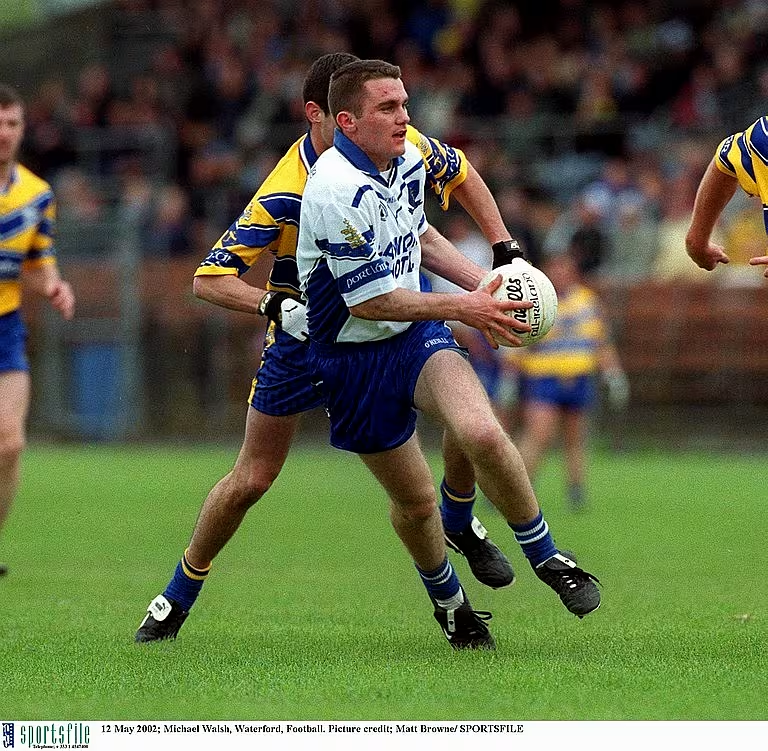
The team's spine was strong with Ger Hayes at fullback, Eddie Rockett at centre-back, future hurling great Michael ‘Brick’ Walsh at midfield and Shane Walsh at full-forward.
Brick was the real driving force of the team.
He was probably the best footballer at the time in the country and he was only 20,” said Hennessy.
“Every game he played, he dominated, he won every battle. He had a tremendous will to win.
“He was probably a bit more of a natural footballer at the time than a hurler."
Shane Walsh, another who would go on to become better known as a hurler than a footballer, was probably the team’s most natural player.
Hayes, along with captain Hennessy, was seen as a real leader.
"Eddie was an absolute bull at centre-back. Poor Declan O’Sullivan got an awful time off him.
"We had a lot of nice footballers but Eddie brought a physicality; if they had a big physical guy, he would go through them."
Billy Harty, just 18 at the time, was a key scorer and free-taker at corner-forward.
In all, they had 13 who were also Waterford seniors - that included all six of their starting defence. There was experience in the panel despite its youth.
“We had a lot of dual players and it was the one year where they weren’t taken by the hurlers.
“When it’s coming towards a final or semi-final in the hurling [championship], you won’t get those guys. Waterford had been knocked out so it didn’t impact us.”
In the Munster semi-final, Waterford produced a minor miracle: they came from nine points down to beat Cork.
It was a cracking game. Amazingly, we played all the football.
I'd say Cork thought it would have been a lot easier if they'd had Setanta Ó hAilpín and John Gardiner starting. They brought those on and we actually played better when they came on.
We were nine points down at half-time and I'd say the second half was probably the best football I've ever seen Waterford play at any level really.
Waterford’s brand of football was a free-flowing one which had its origins in Hennessy’s father, himself a fine footballer in his day. John Hennessy was named on the Waterford team of the Millennium. He also won three Railway Cups in the 70s with the likes of Pat Spillane and Mikey Sheehy.
Pass and go, pass and go; it was all about free movement. The style of football and the talent on show brought a big crowd to Walsh Park. Somewhere between 5,000 and 6,000 was the number, nearly all of them Waterford supporters. The Wednesday evening fixture did not encourage travellers from Kerry.
"I played with a few of the Cork lads and they knew myself and Shane, guys who were in Cork, they would have known that these guys are good.
"Kerry lads wouldn’t have known as much about us. I wouldn’t say all of them but five or six of them probably thought it was going to be a walk in the park.
"It might have been a shock to them that we didn’t actually give away the ball easily and they realised these guys can play football."
Deise tails were up after the win against Cork. There was a nervousness but also confidence. That confidence showed and was merited in the opening 30 minutes. Waterford led by four points the break - 1-5 to Kerry’s 0-4. Mark Power had fisted the ball to the net midway through the half.
Kerry emerged in the second half a more fiery outfit. They took a one-point lead through a Mark Collins goal after 40 minutes - one Hennessy called “fortuitous”. They had a chance for a second but DJ Fleming’s penalty hit the post.
The Gooch’s second and third points of the game gave Kerry a two-point lead with nine minutes left but Waterford remained calm. There was still a belief they could dig out a result.
“I still thought we played all the football against Kerry and nearly lost it - we could have lost it.
“I remember five minutes to go and I couldn’t believe it: we’d played so well and we were behind. I thought we deserved it, we were hungrier.”

Tony Whelan brought them within a point with four minutes left on the clock and then in injury time - the 61st minute - came Waterford’s dagger to the Kerry heart.
Everyone thinks it was a pass but I tried to kick it over the bar and it fell short; it looked like a lob but I went for a shot, a point.
Shane Walsh - he had an unbelievable leap on him - he hit it in with his fist.
It was a great way to win the game.
Referee Ger Haugh played on for another 90 seconds. It was the cover on a Waterford pot waiting to boil over.
And boil over it did. The crowd burst onto the field at the final whistle. Pandemonium in the Park. The scoreboard was a most beautiful sight: Waterford 2-8 Kerry 1-9.
A group of 120 fans had followed the team from the start of the championship - the quarter-final against Clare which had gone to a replay. After Hennessy lifted the Corn na Casca, those were the people the team celebrated with.
"They followed us the whole way through and we had this ritual where we’d go for a drink after each game. That core group was always there with us. We had a great night, we all stayed in Waterford city.
"We went to the schools the next day. It was strange for a lot of us, signing autographs as Waterford footballers. It was a great buzz. I just remember being on a great night."
*****
The game came ten days after one of Kerry football’s lows: Tyrone trouncing them by seven points in the All-Ireland semi-final. That was the day Pat Spillane coined the term “puke football” to describe the nightmare unleashed on the Kingdom by Mickey Harte.
Hell on earth that game was for the majority of the Kerry panel but at least the torture ended there. Against Waterford, Colm Cooper, Declan O’Sullivan, Seamus Scanlon and Declan Quill would plunge to even lower depths.
Cooper and O’Sullivan had started against Tyrone - they scored a point each - while Scanlon and Quill came off the bench. Quill, Kerry senior captain that year, scored two of Kerry’s abysmal total of six points.

"The whole day from when we stepped on the bus in Kerry was a disaster," disclosed Quill.
We had stopped somewhere in Tipperary in some hotel for sandwiches because it was a three-and-a-half hour journey. The hotel was dark and the atmosphere surrounding the whole thing was a disaster.
We hit the rush hour traffic in Waterford. I’ll always remember because my wife was from Waterford and any time I go out by the car dealerships there I’m reminded of it.
I don’t think there was any ring road there at the time. I’ll always remember being inside in the bus and it was crawling along, we couldn’t get anywhere.
We were late getting to the stadium. They weren’t going to delay the game as far as I can remember. We were actually late for our warm-up and we were running late all through the day.
Our warm-up was rushed and we came out in the first half and didn’t play at all. Half of us were still on the bus.
The late arrival reflected a general complacency from Kerry about the game.
“I don’t know how the management was feeling about it because I wasn’t in with them that much but definitely from a player’s point of view we took it for granted that we were going to win that game.
“I remember talking to one or two of the lads, and I won’t mention names, but we were more or less saying that we had the name on the cup.
“It’s an awful way to go into a game, with that attitude, when you’re put to the pin of your collar then.”
The near miss at minor level three years earlier should have been a warning sign but it wasn’t heeded. Kerry were four down at the break and lucky for it to be just that.
Jack O’Connor, the man who would take over from Páidí Ó Sé as Kerry senior boss later that year and lead the Kingdom to three All-Irelands, was in charge that day.

“It wasn’t really until half-time that we regrouped in the dressing room.
“I can remember Jack saying, ‘Lads, you’re in a game here. You might not realise it but these guys are not going to roll over and die for anyone, especially after getting a sniff of blood’.
“I always remember him turning to Gooch to speak in the dressing room and he spoke very well. It kind of settled us.
“We played very well in the second half. We were nearly home and hosed. We missed a penalty which would have been a big score at the time; Dodge [DJ Fleming] hit the bottom of the post and it came back out.”
Quill was only a spectator as the game reached its final moments.
I was taken off with four or five minutes to go and I was sitting on the bench - [Kieran] Donaghy came in for me.
I just remember watching it from the bench: the ball came across the square - the whole thing just slowed down - and you could just see that Shane Walsh was going to get there ahead of everyone else.
Your heart sank, there was no chance of coming back. The place went wild when the ball went into the back of the net.
It was massive crowd from Waterford there and I remember them storming the field after. We were trying to get off the field as fast as possible.
It was a massive game for Waterford football. We were part of history but we were on the wrong side of it.
The trip back to Kerry was a quiet one. In his book, Gooch said that day made him wonder if the inter-county game was for him. Jack O’Connor wondered if it would cost him the Kerry senior job.
“There weren’t many fellas showing their faces around Tralee and Killarney for a couple of weeks.
“Mostly, fellas were just stunned. There was high embarrassment from a team point of view; we were a Kerry U21 team that was hotly fancied going down to Waterford and came home with nothing.
“Fellas went into the bunkers and kept a low profile.”
Looking back now, Quill assesses a naivety about the Kerry team.
“If you look down through the names that they had on that team now - hindsight is 20/20 - but you see Brick was on the team, Shane Walsh, Liam Ó Lonáin, Eddie Rockett, they had good subs coming on. If you look back, you’d said it’s a very good Waterford team.
“OK, they beat us with a last minute goal but they should have been ahead before that even.
“They deserved to turn us over that night, they played very good football.”
*****
There were 18 days between victory over Kerry and the All-Ireland semi-final. That was considerably less time than Waterford’s opponents Dublin had spent in the waiting room.
The Leinster final had been won against Longford just shy of five months earlier and the Dublin seniors had exited the championship in the qualifiers to Armagh in the first week of July.
It gave manager Tommy Lyons, who was also senior boss, ample time to attend games and study tape. Waterford’s element of surprise had been spent.
Neither did it help that the county board scheduled matches for the week before the semi. Niall Hennessy picked up a concussion while marking Shane Walsh in a club game.
Fullback Ger Hayes was a casualty of the win against Kerry where he suffered a serious knee injury.

“Within two minutes against Dublin, John O'Reilly, did his cruciate and I broke my toe - the big toe on my right foot - I played the game but I could only kick with my left foot,” said Hennessy who still managed to kick a point.
“We were very unlucky. It's not that we're a small county but we had 15 top players and one or two who could come in at the end of the game.
“We had a young lad, Eamonn Walsh, who used to come on 20 minutes from the end of the game. We had to start him against Dublin, so we lost that impact.”
The Dublin team was one full of names who would go on to become regulars at senior level. Alan Brogan was the star. He kicked 1-3 against Waterford. Bryan Cullen, Paul Griffin, Declan Lally and Conal Keaney were also in the side.
“I still think that if we'd played half as well as we did against Cork, I think we would have won the game,” said Hennessy.
Dublin won the game 3-10 to 1-7 and went on to defeat Tyrone in the final to claim their first ever All-Ireland U21 title.
That year's Munster final was the pinnacle for that Waterford team. The group which had been together for the previous seven years began to split.
In a county where football will always be in hurling's shadow, the lure of being an All-Ireland contender was too much to resist for many. Brick headed off to be a four-time All-Star.
"He was underage again the next year but the sad thing was they played Kerry in the semi-final the year after but Michael and the other top players weren't released by the Waterford hurlers.
"That was disappointing: we were Munster champions and we couldn't field our best team the next year.
“A lot of really good footballers went playing hurling. I love hurling, if I got the call-up, I’d probably go as well."
Injuries also took their toll - Ger Hayes was never the same player again after that cruciate injury.
In recent weeks, Niall Hennessy's brother came across a scrapbook of that momentous championship and the memories came flooding back.
He played in a Division Four National League final against Limerick in 2010. They lost by two points but it was another memorable day in a Waterford jersey. Still, it was nothing compared to that Wednesday evening in Walsh Park. Waterford football's greatest day in living memory.
"I suppose we had it in our heads that this was it, this was going to be the norm but it never happened again.
“I played for a lot of teams. Whatever it was, it was like playing with your mates for that little group.
“After that year, we never played together again, all of us.”
Pictures: Sportsfile



